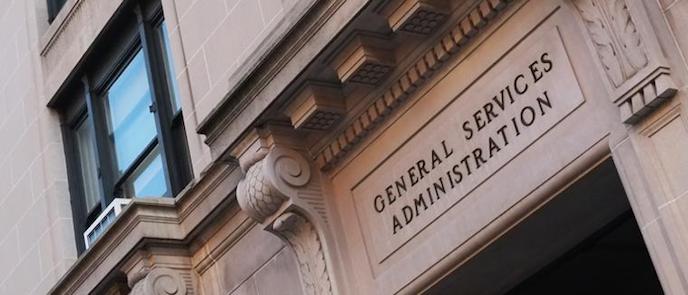Like in any other industry, there could also be scams and frauds in government contracting. As a GSA vendor, you should know about the typical scams you can face within the General Services Administration's schedules program. Interestingly enough, even though GSA scams are financially dangerous, there are also ways to benefit from them, if you know how to.
- What are GSA Schedule scams
- Types of GSA scams
- GSA Schedule Agent Frauds
- How to avoid such type of fraud?
- GSA Spoofing Scams
- How to avoid this type of fraud?
- GSA Contracting Frauds
- General Services Administration Fraud Lawyers
What are GSA Schedule scams
GSA Schedule scam is a general name for all types of fraudulent schemes that certain shady people or organizations may use to line their pockets.
Typical GSA Schedule frauds are:
- Fake quote requests or purchase orders that aim to swindle money out of GSA Schedule holders.
- Pretending to be a legitimate government contractor that is looking for a subcontractor. Then, after a subcontractor invests into it, the scammer disappears.
- Posing as a procurement officer or other official authority to send fake purchase orders to unaware vendors.
- Manipulating with prices or service fees. A legitimate contractor can try to cheat at the GSA and offer either overpriced or greatly underpriced offers.
- False claims. Knowingly selling products that are below standard. Often, this is done through such platforms as GSA Advantage or within the GSA Global Supply program.
Types of GSA scams
In general, all GSA Schedules fraud can be divided into two big categories: the scams that try to cheat the GSA, and the scams that try to cheat the vendors. Here are the most common examples of GSA scams.
GSA Schedule Agent Frauds
Here is one type of scam that GSA vendors must be aware of: fraudulent “GSA Schedule agents”.
The fraud works as follows: A GSA vendor looks for a trustworthy GSA agent to represent the company in the government contracting business. This is totally ok, because having an experienced consultant that can guide through the numerous complexities of FSS GSA Schedules can greatly simplify things for a vendor. And here is where scam services can try to feast on your natural wish to make your life easier.
A scam service promises to help you get on a GSA Schedule or claims the ability to provide GSA contract management services. But after receiving your money, they just disappear without providing any services. Needless to say, such scam companies do not fulfill what was promised. They do not actually help you fill out and submit an application to the GSA, nor do they communicate with contracting officers, or assist you in the legal field. They just take your money and vanish. Such companies are 100% fraud.
How to avoid such type of fraud?
First of all, you must understand that no third-party agency can guarantee that you will get a GSA Schedule contract. So, whenever you hear something about a guaranteed GSA contract, you can immediately tell this is a fraud.
Also, make sure to do your research on the agent thoroughly before conducting business with them. Many such scams conduct their shady business under dozens of bogus names. Such names are usually never mentioned anywhere, the contacts are limited to one-time emails or messengers, and their websites look unnaturally simple, with little or no content.
GSA Spoofing Scams
Another typical scenario is spoofing.
Here is how a spoofing scam works. Criminals contact legitimate GSA vendors, pose as federal agency representatives, and can even place phishing GSA orders online using spoofed contact data of real federal employees. In the past, the GSA alerted Schedule 75, Schedule 70 and GSA Schedule 84 holders about such phishing attacks.
How to avoid this type of fraud?
While such phishing frauds are not particularly new, many GSA vendors still do not know about them. Your first line of defense is to always check federal platforms such as the GSA Advantage for published solicitations. If someone contacts your company and says he wants to place an order, make sure such an order is also published on the federal platforms. Place a call to the government buyer, to make sure the order placed on their behalf is real. Note that credit card orders have a maximum threshold, so if you receive a lot of CC orders for pricey equipment, this may also be a sign of fraud.
GSA Contracting Frauds
This type of fraud targets the GSA. The idea behind the fraud is to present false claims to GSA contracting officers and win the contract. So in the end, such a vendor offers either over or underpriced products or services to federal agencies.
Interestingly, sometimes you can even benefit from GSA contracting fraud thanks to the whistleblower provision of the False Claims Act, 31 U.S.C. § 3729 et seq. The False Claims Act sets the foundation for the whistleblower reward system. A whistleblower can report false claims in GSA vendors’ Schedule contracts and get an award amounting up to 30% of the funds the government recovers as a result of the qui tam lawsuit.
So if you see some wrongdoing in the federal contracting processes in your or a competing company, you may report it under the False Claims Act (as long as the whistleblower prerequisites are fulfilled).
General Services Administration Fraud Lawyers
You can greatly reduce chances of becoming a victim of GSA Schedule scams if you cooperate with an experienced GSA expert. If you are working with the GSA Schedule 84 (Security) MAS category, you are at risk of bidding on a fraudulent GSA solicitation and facing other GSA scams. Of course, the government fights such fraud attempts, but that doesn’t mean anyone is 100% safe.
A GSA fraud specialist is a seasoned consultant, such as Price Reporter, who can help prevent scams and fraud, maintain contract compliance, monitor potential price reductions, and resolve legal claims to your company, both from competitors and federal agencies.
If you want to hire a GSA consultant, please contact Price Reporter directly. We will be happy to help.








